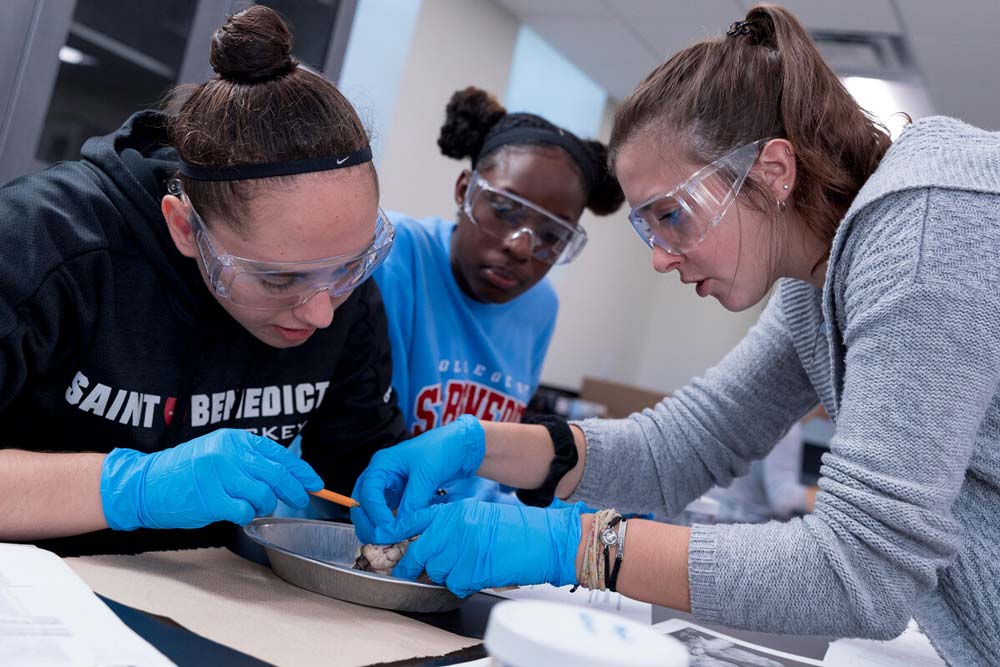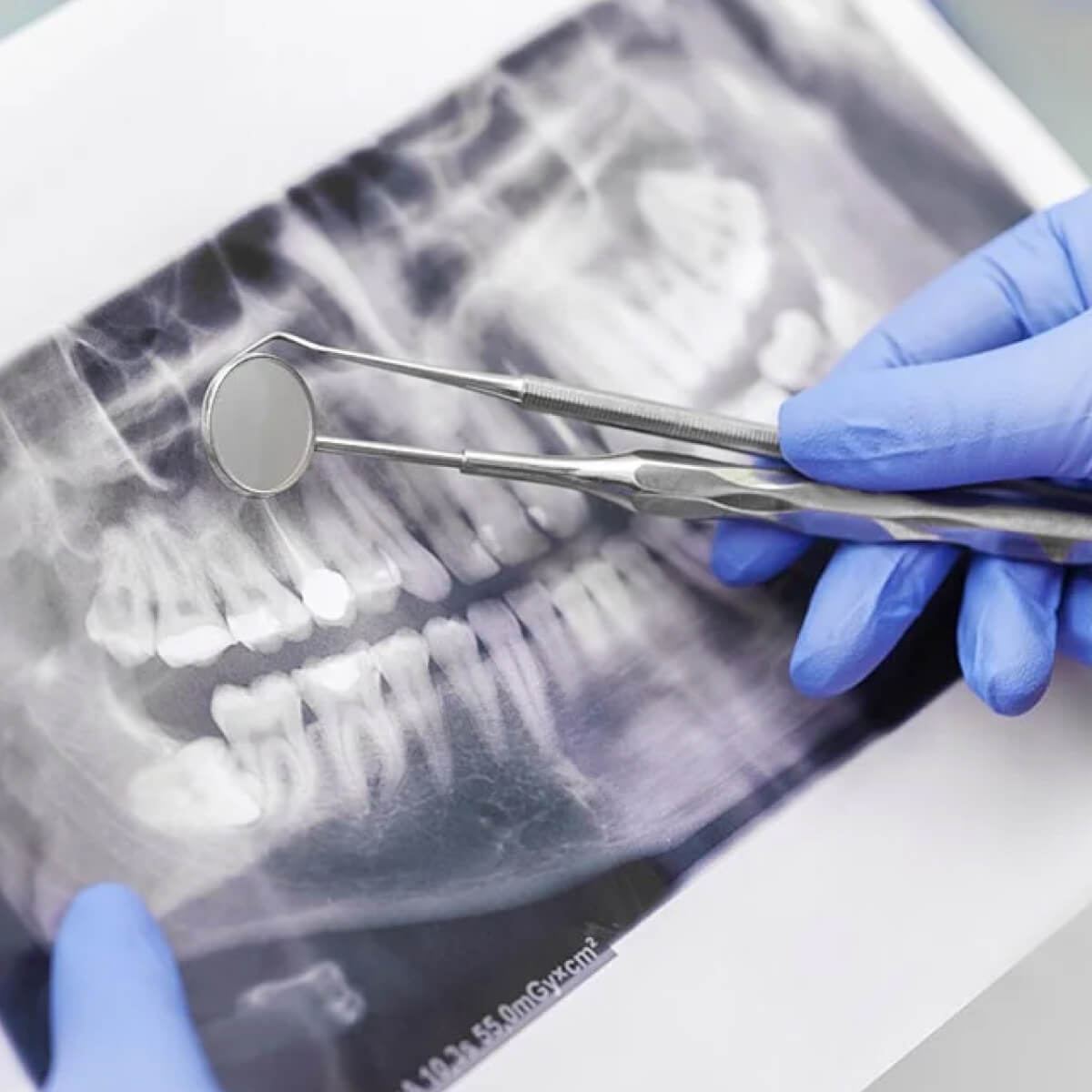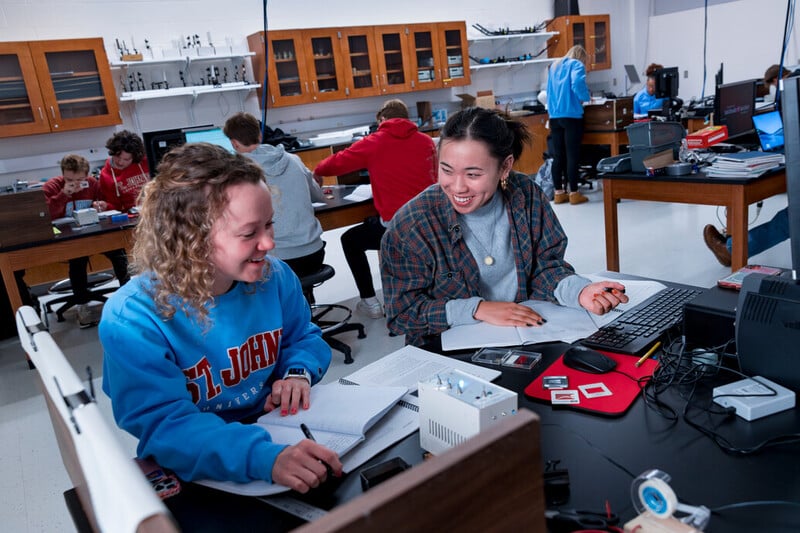 Home
Home

Pre-Professional Programs
Pre-Dental
As a dentist, you can build a lifetime of impact on the health and quality of life of your patients. At Saint Ben’s and Saint John’s, we help students start that journey with a strong science background, immersed in the liberal arts and enhanced with powerful, valuable co-curricular learning experiences.

